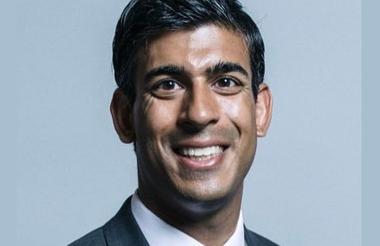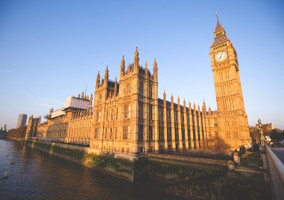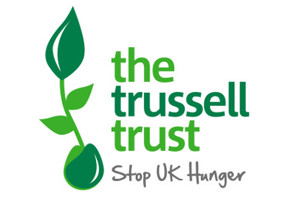Charities have said that plans outlined by the chancellor yesterday to help the economy recover from the impact of Covid-19 do not go far enough.
Rishi Sunak, chancellor of the exchequer, delivered an economic update to Parliament yesterday.
The main points include a £2bn scheme to create job placements for young people, a temporary change to stamp duty and a temporary cut to VAT on food, accommodation and attractions from 20% to 5%.
Sunak also announced new job retention bonus for employers who bring back furloughed staff and a £2bn green homes grant to help make homes more energy efficient.
Charities welcomed some aspects of it, but called for the government to do more to protect vulnerable people.
Infrastructure bodies
ACEVO: ‘Many of the chancellor’s proposals were short-term’
A spokesperson for ACEVO said: “This mini-budget was about jobs: protecting them, supporting them, and creating them. This included a welcome proposal for a new ‘Kickstart Scheme’ to create thousands of work placements for people aged 16 – 24.
“However, many of the chancellor’s proposals were short-term or surface-level interventions reliant on the country being able to consume its way out of crisis. A plan placed on consumption is one that does not reflect the challenges faced by the most marginalised and disadvantaged people in our communities. Challenges like a broken care system, rising rates of in-work poverty, under-investment in community infrastructure and a house building crisis.
“ACEVO was one of a number of charities that wrote to the chancellor outlining a five-point plan to unlock billions to deliver social good. Danny Kruger’s upcoming civil society review and the Autumn Budget still provide an opportunity for the government to demonstrate its commitment to investing in communities and civil society so that we can build back better together.”
Charities Aid Foundation: ‘Charities are integral to the UK’s recovery’
Sir John Low, chief executive of the Charities Aid Foundation, said: “The chancellor has laid out several positive measures to help people, especially young workers, to weather the effects of the pandemic. We continue to urge the treasury to consider the proposal to increase Gift Aid so that charities can play their part in rebuilding our economy.
“Just as we need the hospitality sector to survive, people across the UK need charities to still be there as we emerge from this crisis.
“Charities are integral to the UK’s recovery and are at the heart of our communities, and indeed together they currently employ more than 900,000 people in the UK.”
Charity Finance Group: 'Overall there was very little of direct relevance to our sector'
Richard Sagar, policy manager at Charity Finance Group, wrote a blog laying out key points from the budget.
He wrote: “Overall there was very little of direct relevance to our sector in the Chancellor’s speech and the accompanying documents from the Treasury. In fact, there is only one mention of charities directly and it is only a repetition of the £750m 'emergency' package and the additional money from VAT on PPE and charity singles that has previously been announced.”
Charities
CPRE: ‘The chancellor has missed major opportunities to begin building back better’
Tom Fyans, campaigns and policy director at CPRE, the countryside charity, said: “While we have seen promising starts on energy efficiency and shoring up rural hospitality businesses, the chancellor has missed major opportunities to begin building back better when it comes to transport and housing investment.”
He added: “The £3bn announced on energy efficiency is a good start but must be swiftly followed by a National Retrofit Strategy that CPRE has been calling for in our new report Greener, Better, Faster and a plan for longer term investment. Decarbonising our homes and buildings is essential to preventing runaway climate change. We expect to see further investment in reducing emissions from our existing homes via the £9bn for energy efficiency schemes promised by Boris Johnson in the Conservative Party’s general election manifesto at the end of last year.”
Groundwork: ‘We also hope that priority will be given to jobs which deliver community benefit’
Graham Duxbury, chief executive, Groundwork, said “We’re really pleased to see the chancellor make a decisive step in preventing a generation of young people from being scarred by unemployment. Our experience over many years shows that the best way of helping young people prosper in the long-term is to make sure they have decent work experience to draw on. In times of recession creating temporary jobs is absolutely the right thing to do.
“We look forward to seeing more detail so that we can understand how the kickstarter scheme will link with other recovery initiatives. In particular we want to ensure that those young people who are furthest removed from the labour market get the personal support and training they need to take up the jobs created. We also hope that priority will be given to jobs which deliver community benefit and help us achieve our climate change goals, so that our economic recovery from Covid-19 is both green and fair.”
Action for Children: ‘Investing in children is the best way to help the country back on its feet’
Imran Hussain, director of policy and campaigns at Action for Children, said: “The chancellor announced a big package of support on jobs and businesses but if the government’s response to the coronavirus does not prioritise children alongside health and the economy, it will create long term damage to public finances, as well as to a generation of youngsters.
“Children are now facing unprecedented threats to their childhoods and futures. The longer we wait to help them, the bigger the problem that will need fixing and the greater the harm to our children, our skills base and to our economy.
“Our frontline staff tell us that families are struggling to deal with the daily disruption to life caused by the crisis – all while services protecting children are at breaking point, school budgets under pressure and job losses soaring.
“As we face the coronavirus economic storm, children must be at the heart of our nation’s recovery plan. We urge the government to shore up family budgets and protect the most vulnerable children, including those with disabilities, mental health difficulties, children who have suffered abuse and those from minority communities.
“Investing in children is the best way to help the country back on its feet and a prerequisite for levelling up the country to ensure all our children have a fighting chance of a safe and happy childhood.”
Oxfam: 'A glaring omission in the chancellor's statement was the lack of action to support carers'
Kirsty Davies-Warner, head of UK programme at Oxfam, said: “The chancellor today laid some of the foundation stones needed to ensure that we rebuild the economy in a way that tackles both climate change and poverty. But much more will be needed over the coming months if the government is to achieve its ambition of 'levelling up'.
“A glaring omission in the chancellor's statement was the lack of action to support carers who have stepped up to get the country through the pandemic, yet continue to be paid less than they need to live on. Throughout this crisis, the chancellor has rightly clapped the nation’s carers - today he should have used all levers at his disposal to ensure care workers are paid at least the Real Living Wage and to increase the Carer's Allowance. A truly just recovery requires a new deal for carers.”
National Trust: 'We question how they live up to government promises about building back greener'
Patrick Begg, outdoors and natural resources director at the National Trust, said: “The chancellor’s announcements fail to meet the scale of ambition needed to tackle the nature and climate crises. With the prime minister also proposing radical changes to the planning system, which safeguards heritage and nature, we question how they live up to government promises about building back greener.
“Lockdown has reminded us how important nature and green space is to people – and how unequal access to it is. Our research shows a £5.5bn investment in green infrastructure is needed to tackle these inequalities and unlock huge economic benefits, so it is disappointing that this wasn’t reflected in today’s speech.
“The Green Recovery Challenge Fund is good news and means previously promised money for nature and climate will be available sooner. But £40m represents only a fraction of the scale of the challenge we face in restoring nature across the country – conservation charities together recently highlighted the need for a £350m fund to ensure existing nature projects can go ahead.
“The £3bn package for energy efficiency is a great first step to meeting the government's manifesto commitments. However, with 22% of England's housing stock built before 1919, a specific plan is needed for the rollout of appropriate measures for traditional and historic buildings.”
Barnardo's: 'As lockdown eases the true extent of the devastation caused by the pandemic will become apparent'
Javed Khan, chief executive of Barnardo's, said: “With the UK facing such an uncertain economic future it is no surprise the chancellor's summer statement focused on measures to try and protect jobs and the housing market.
“The ‘Kickstart’ jobs scheme for 16 to 24-year-olds, with government-subsidised six-month work placements, is very welcome, but it’s vital these opportunities are accessible to the disadvantaged young people who need it most.
“A key test of the scheme, and the government’s post-Covid recovery plan, must be whether it improves outcomes for groups such as care leavers and young people from BAME communities.
“As lockdown eases, the true extent of the devastation caused by the pandemic will become apparent, including the challenges facing vulnerable children who have been ‘hidden’ from teachers and services.
“In the Autumn Budget I would urge the chancellor to invest in vital services for vulnerable children and families, which were at breaking point even before Covid-19.
“By investing in this way, local authorities, charities, schools and others can work together, stepping in early to support children before they reach crisis point, which gives them the best possible chance of a positive future.”












